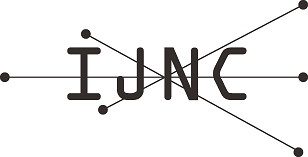Topology Management for Reducing Energy Consumption and Tolerating Failures in Wireless Sensor Networks
Abstract
We investigated energy efficient and fault tolerant topologies for wireless sensor networks (WSNs), addressing the need to minimize communication distances because the energy used for communication is proportional to the 2nd to 6th power of the distance. We also investigated the energy hole phenomenon, in which non-uniform energy usage among nodes causes non-uniform lifetimes. This, in turn, increases the communication distances and results in a premature shutdown of the entire network. Because some sensor nodes in a WSN may be unreliable, it must be tolerant to faults. A routing algorithm called the “energy hole aware energy efficient communication routing algorithm” (EHAEC) was previously proposed. It solves the energy hole problem to the maximum extent possible while minimizing the amount of energy used for communication, by generating an energy efficient spanning tree. In this paper, we propose two provisioned fault tolerance algorithms: EHAEC for one-fault tolerance (EHAEC-1FT) and the active spare selecting algorithm (ASSA). EHAEC-1FT is a variation of EHAEC. It identifies redundant communication routes using the EHAEC tree and guarantees 2-connectivity (i.e., tolerates the failure of one node). The ASSA attempts to find active spare nodes for critical nodes. It uses two impact factors, α and β, which can be adjusted so that the result is either more fault tolerant or energy efficient. The spare nodes fix failures by replacing them. In our simulations, EHAEC was 3.4 to 4.8 times more energy efficient than direct data transmission, and thus extended the WSN lifetime. EHAEC-1FT outperformed EHAEC in terms of energy efficiency when fault tolerance was the most important, and a fault tolerant redundancy was created when or before a failure occurred. Moreover, we demonstrated that the ASSA was more energy efficient than EHAEC-1FT, and the effect of using different α and β.
Keywords
Full Text:
PDFRefbacks
- There are currently no refbacks.
